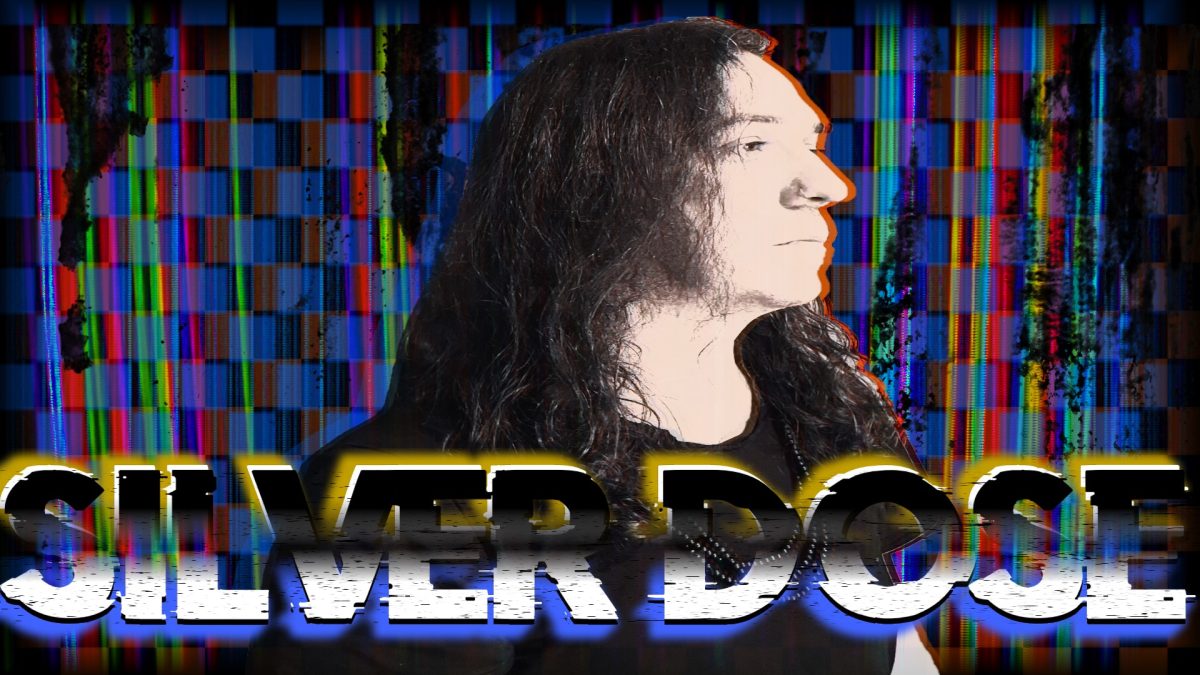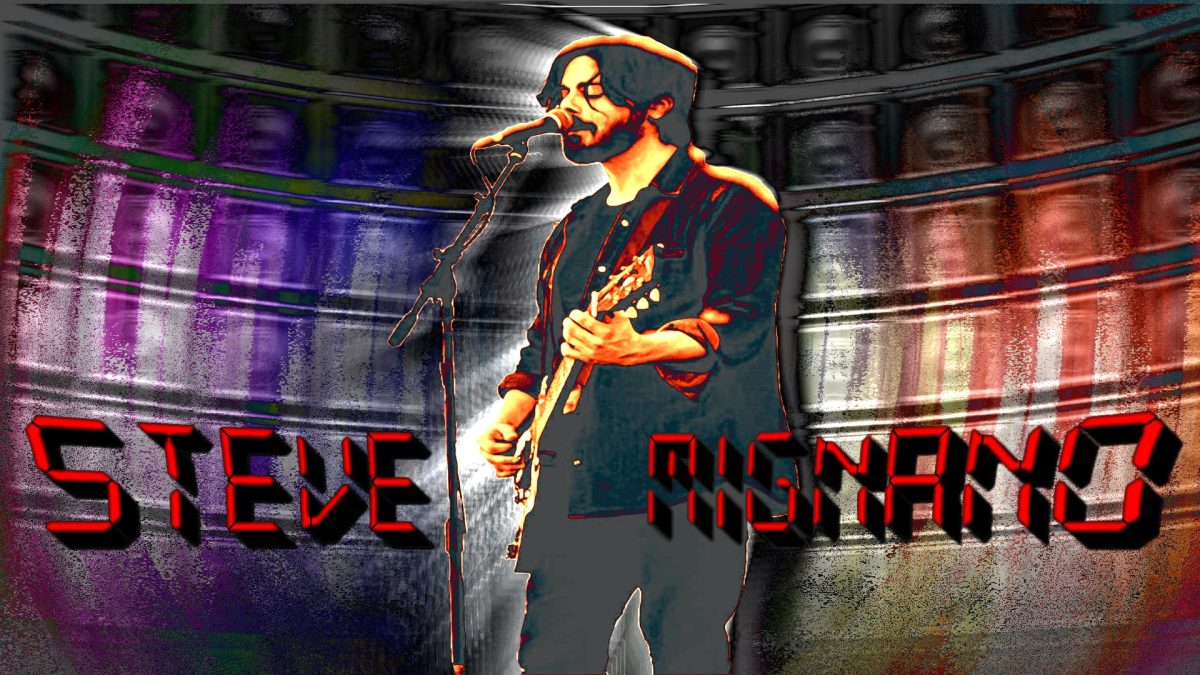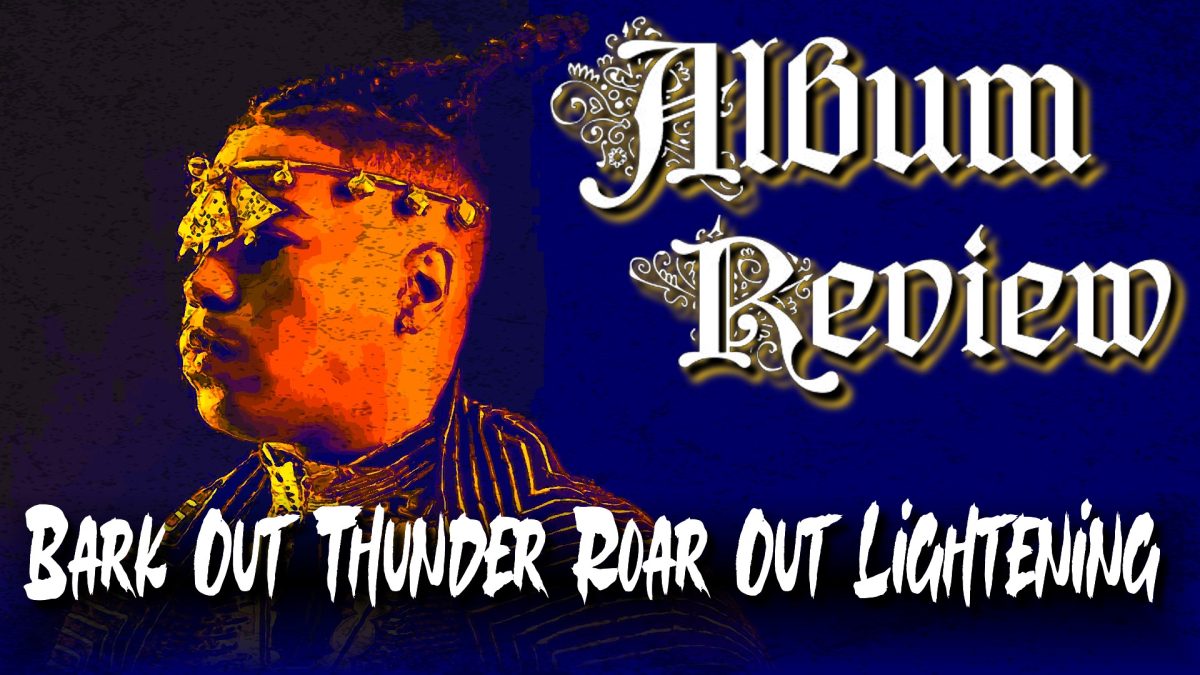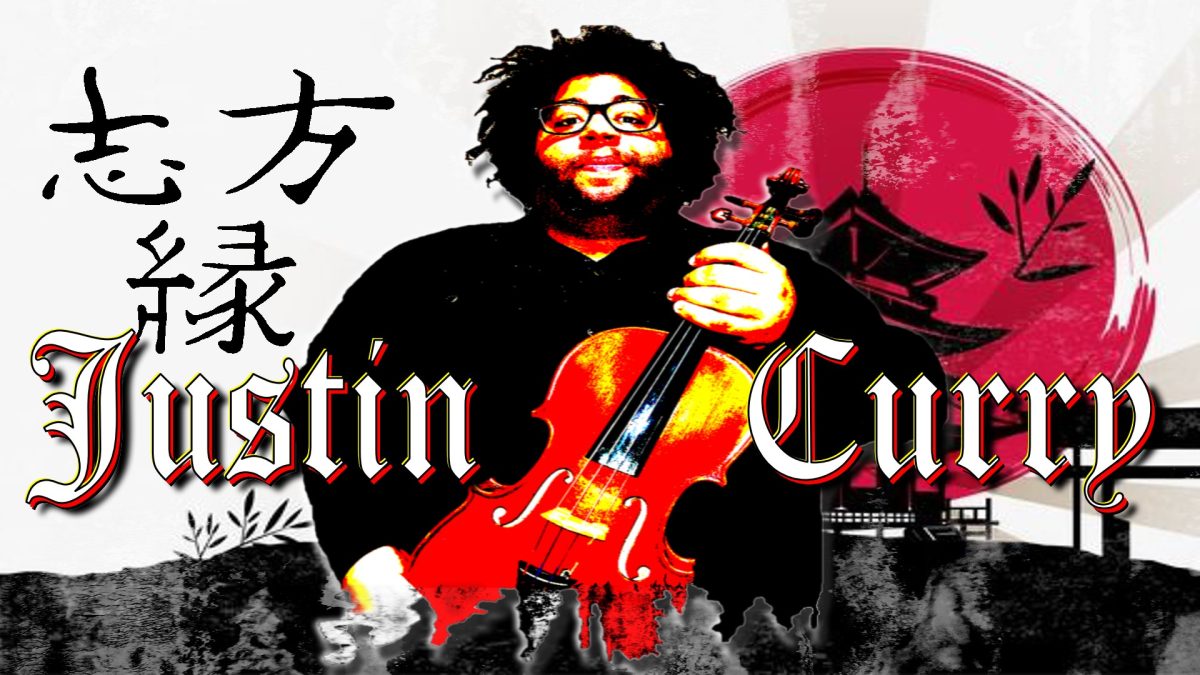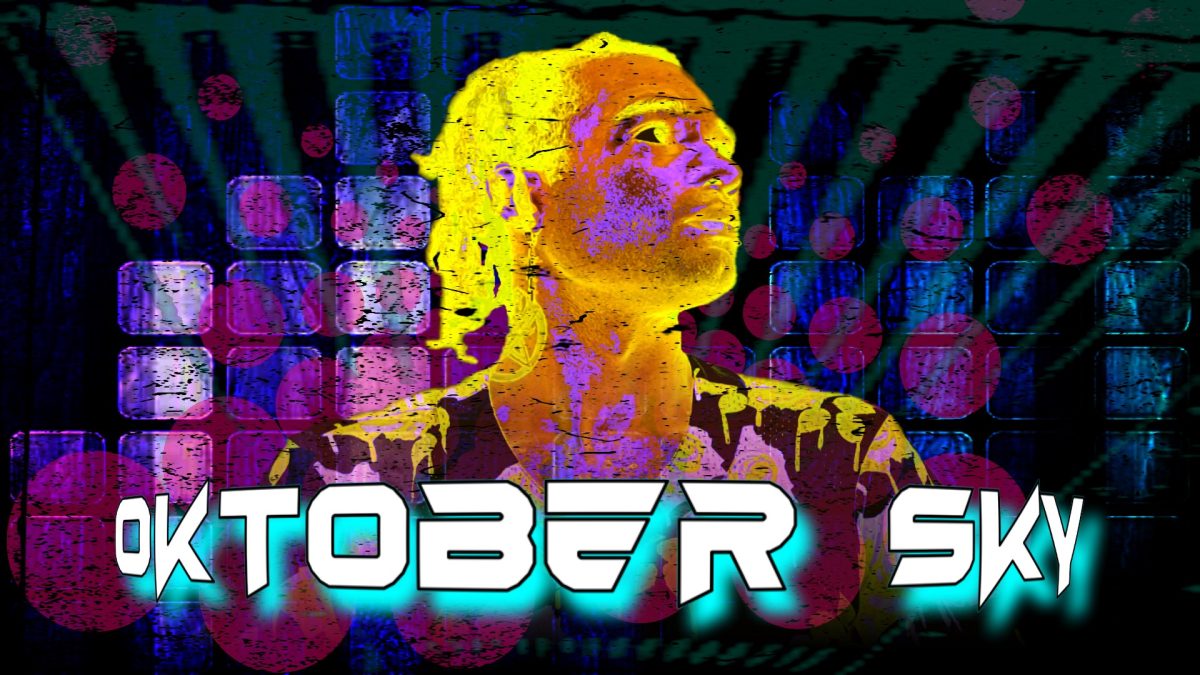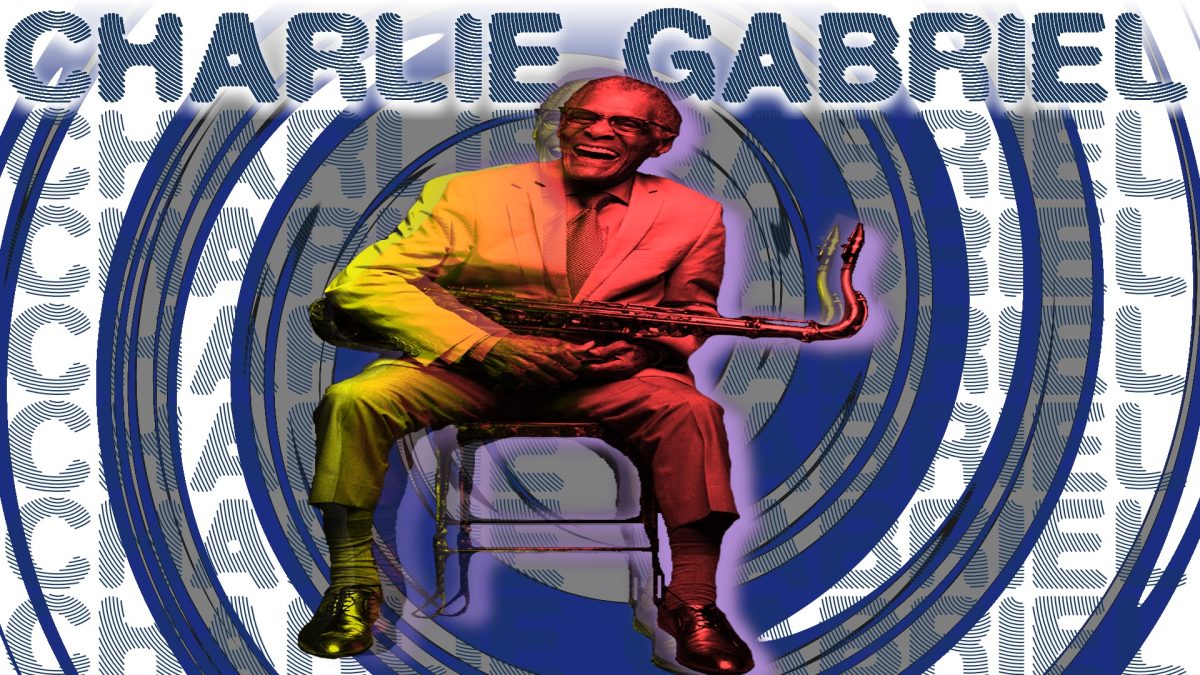Growing up in Santo Andre, a city in Sao Paulo, Brazil, Gustavo Andrade would see a vendor near his school selling CDs from a cart on the street. Although within eyesight, it wasn’t on his walk home and at twelve, he dared not stray from his assigned path. But a budding curiosity and growing enthusiasm for music seeded a plan in his mind. He would skip lunches, saving up his lunch money, run down the street to the vendor, and score a CD unbeknownst to his parents or teachers. The album he chose from the cart was a bootleg of Nirvana’s “Nevermind”. He had heard about Nirvana from kids in the schoolyard when their older siblings put them onto the sound. His older sister had a collection of more rock, showcasing the crunchy guitars and chaotic drums in which he was interested. But he now had something of his own that he could study. At this time in his life, he only heard English being spoken in movies. He could not speak it, nor could he fully understand what was being said. But as a tattoo can appeal to someone not knowing its meaning, the sonic design was something he was drawn to naturally. And though he would beg his parents for a guitar, he didn’t understand that these guys were plugging into electrified amplifiers and using effects pedals to get that sound. He didn’t have a radio and Nirvana wasn’t on the public access stations on his family television. You can imagine his surprise when he finally got a guitar and it was an acoustic.
The discrepancy in sound he heard did not deter him from his newfound love. Soon, he would quit soccer, which was a big deal where he was from. Every day after school, he would spend his time trying to replicate what he heard as he explored his tastes in music. The advent of the internet had yet to shape the way he learned. Buying rock magazines and tab books from a local newsstand helped to propel his efforts, and physical copies of albums mentored his evolution. Releases by bands like Kiss and Iron Maiden soon added to his collection. And he would be fortunate enough to get lessons from a guitar player in his neighborhood. The true litmus was in his actions and how they began to change. He was obsessed. While other kids his age were playing video games, he was trying to write music. He dreamt about learning and playing guitar. He had yet to think about an actual career in music because he didn’t see performers like that around him.
At just fifteen years of age, he got the opportunity to open for his local instructor in a bar. This marked the first time he heard any actual criticism. But the curiosity and enthusiasm within him somehow drowned out those sentiments as well as any self-doubt they might have caused. Guzz recalls, “I think early on I tried to listen by ear because I also didn’t have many tabs for some of the songs I like. Or sometimes they were wrong. Or they were in a different tuning and I didn’t even know you could change the tunings of your strings; for a long time I didn’t know. So, I think I learned by seeing other people; going to see other people playing, as well as borrowing video tapes from friends… a copy of a Zack Wylde guitar lesson. It was instructional, like some pentatonic stuff. I started catching a little bit of this, a little bit of that.” His head was so much into rock and roll, it was almost as if it had become an entity unto itself. His musical sense of self-identity had yet to even occur to him.
Guzz had a cousin that was into playing music. The two would trade cassettes back and forth, sharing ideas and forming a sound. Being under eighteen (and unable to drive by law in Brazil), transportation was a challenge. But the two formed a four-piece band they named Cycle Love. They played wherever they were allowed, lugging equipment on and off trains and buses to get to gigs. He would push this for two years, but the momentum eventually died. His next band was what he considers to be his first serious project, Vulgar Type. He formed this one with more experienced friends while in college. And when the band still lacked a singer, Guzz began to try his hand at it. He took up lessons with a guy by the name of Nando Fernandez, whom you might have recently seen on stage singing with Lynyrd Skynyrd in Brazil. Things began to get more serious, and he was able to put out a three-song EP, which is still streaming on all platforms. That same cousin would this time serve as their videographer, enabling Vulgar Type to produce music videos as well. Guzz was seeing EP sales in both the U.S. and Japan. And the experience furnished him with opportunities to form connections on both continents. Throughout this time, he was charged with figuring out logistics for album sales, marketing, and networking; tools he uses to this day.
Through all of the cross-continental communications, Guzz also landed a significant other in the states. She began to visit him, and he would come to the U.S. to visit her as well. This is how he ended up living in Louisiana. His reflection on how fast the time seems to have flown by is earmarked by the changing technology. The limited capabilities of his youth quickly evaporated as he matured. He went from buying bootleg CDs through street vendors, learning what he could through magazines and the occasional VHS tape, and tuning his guitar using the dial tone to now being able to access anything he wanted on a cell phone. Tab books gave way to Youtube, where not only could theory be learned, but the cultural heritage and influence behind the music could be understood. And speaking of culture, Guzz also reflects on how much of it surrounded him as a child. For many years he was so focused on one thing that the resulting tunnel vision obscured his overall view. He has taken to going back and rediscovering the culture and genres of that time and place in his life.
Since moving to Louisiana in 2018, he has formed his current band, Silver Dose. In realizing how rich Brazilian culture was, his mind is now more open to incorporating thoser rhythms and influences. Being receptive has also led him to look toward American, British, and German bands for influence with this project. Obviously, his life has been about growth and change. But this could be said about life in general. Perhaps unbeknownst to Guzz, his life has actually been about preserving that child who never stopped to think about who he was or where he belonged in the scheme of things. He was releasing new music for Vulgar Type while moving from one nation to another. Friends from back home ask if being in the states has presented more opportunities for him as a musician. And he tends to say yes. But stepping outside of any religious connotations, I’d remind everyone of the saying “God helps those who help themselves.” And even when resources were scarce, Guzz was helping himself. From that moment on the street when he bought the Nirvana bootleg to where he stands now, he has embodied perpetual motion, when we all realize there is no such thing.
On a side note, he mentioned that shortly after this interview, Silver Dose was going to play a benefit show for The Marsh Room, a venue which had recently caught fire. He said they did that sort of thing all the time, that he was always interested in helping his brothers and sisters in the music community. His drummer stopped by after the interview, and the first thing he said to Guzz was that he had a line on another upcoming benefit. I couldn’t help but think how it was things like this that thrust a band forward more than they may realize. His heart is worthy of your attention. And his talent speaks for itself. Knowing what you all know now about his life is proof positive. I do hope you check out the podcast interview (streaming links below), as there are more opportunities to see how he has chosen to navigate through life as a musician and a human being. Thanks to you all for your interest!
Author: David Trahan
Silver Dose: https://neworleansmusicians.com/musician/198

